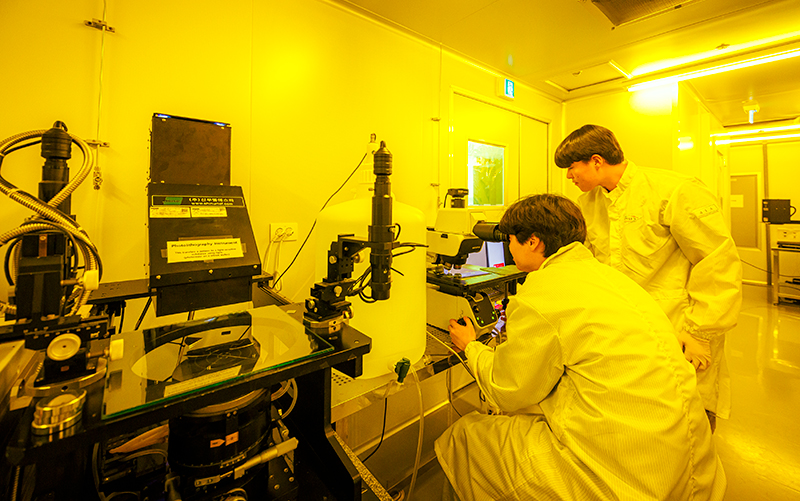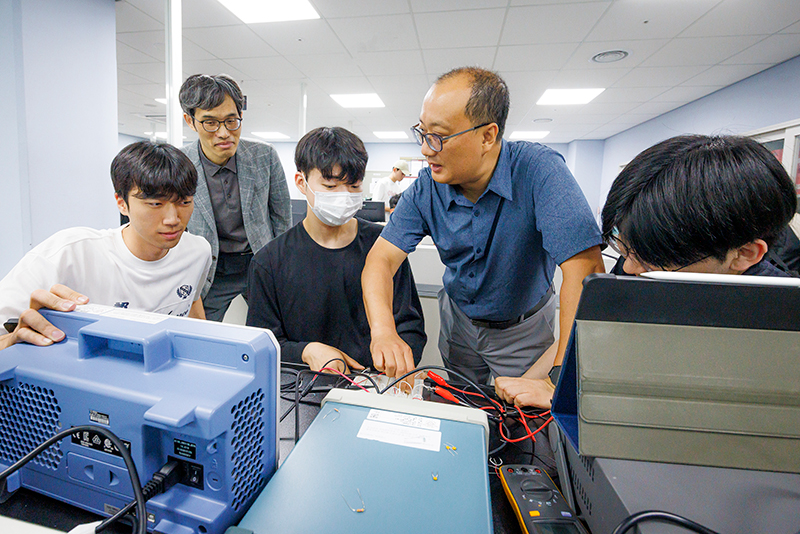header
Education News
New Department of Future Information Display to Launch in 2025
- WRITER 학무부총장실
- VIEW 41

Kyung Hee will establish the Department of Future Information Display starting in the 2025 academic year
The new Department of Future Information Display will accept 88 students, up by 33 from the current Information Display Department. This expansion is part of the Ministry of Education’s 2025 initiative to adjust student quotas in advanced fields, aiming to nurture professionals in response to intensifying global competition in the high-tech industries. To support this, the Ministry is encouraging universities to create and expand departments in cutting-edge disciplines.
Since 2022, the University has remained in step with this policy by establishing new academic departments focused on advanced technology: the Departments of Big Data Analytics in the School of Management, Artificial Intelligence in the College of Software, and Smart Farm Science in the College of Life Sciences. Last year, the College of Electronics & Information introduced the Department of Semiconductor Engineering.
Pioneering display studies and leading the industry
The display industry is seeing a surge in demand for premium electronic products with free-form and ultra-high-resolution displays, along with expanding markets for automotive, transparent, and AR/VR displays. While Korea’s display industry is currently at the forefront of innovation in next generation displays, competition from other countries is growing. Cultivating creative and interdisciplinary professionals is crucial for the nation to stay ahead.
Kyung Hee was the first university in the world to establish an undergraduate program in Information Displays in 2004. Over the past 20 years, the University has developed and operated industry-linked educational programs, significantly contributing to the advancement of the industry. The Information Display Department has now proposed a more integrated and interdisciplinary curriculum, which led to an increase in the student quota approved by the Ministry of Education.
The new department will provide systematic and specialized education on next generation displays through an integrated undergraduate program. This program involves collaboration among the Departments of Information Display, Physics, and Chemistry. Specialized tracks such as Materials and Emissive Devices and Driving Devices and Systems will enhance expertise in the design and analysis of materials, devices, processes, and systems in next generation displays.

“We aim to cultivate professionals in next-generation display technology, provide advanced education, and become a hub for industry-academia collaboration.”
The curriculum reflects the interdisciplinary nature of display studies. In the first and second years, students will complete foundational courses in physics, chemistry, and electronic engineering, which are crucial for understanding and analyzing next generation displays. At the end of the second year, students can declare their specialized tracks for more focused education and training.
In the third and fourth years, students will engage in advanced courses within their chosen tracks, as well as common courses such as industry lectures, overseas field studies, and project-based learning to enhance problem-solving skills. Additionally, the department will offer micro-degrees in AR/VR Displays and LED/OLED Circuit Design, which link the two specialized tracks.
Professor Sung-Wook Min, Head of the Information Display Department stated: “In 2004 we established the world’s first undergraduate program dedicated to display studies. Our extensive experience in operating specialized educational programs enables us to cultivate professionals across all fields of next generation displays and become a hub for advanced education and industry collaboration.”